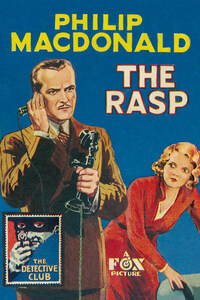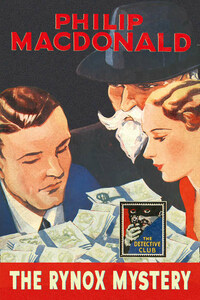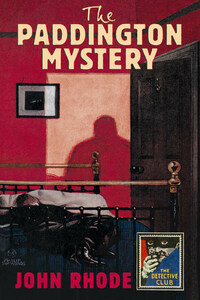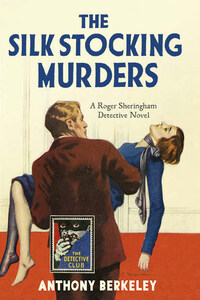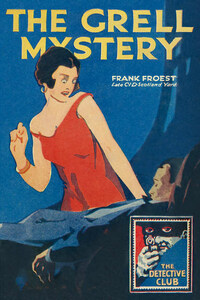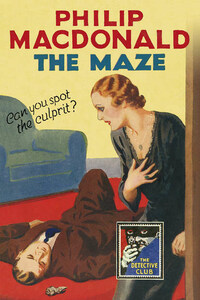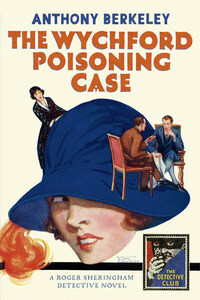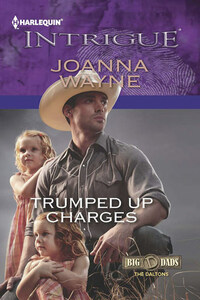Published by COLLINS CRIME CLUB
An imprint of HarperCollinsPublishers Ltd
1 London Bridge Street
London SE1 9GF
www.harpercollins.co.uk
First published in Great Britain by Wm Collins Sons & Co. Ltd 1924
Published by The Detective Story Club Ltd 1932
Copyright © Wm Collins Sons & Co. Ltd 1924
Introduction © Tony Medawar 2015
Cover design © HarperCollinsPublishers Ltd 1932, 2015
A catalogue copy of this book is available from the British Library.
This novel is entirely a work of fiction. The names, characters and incidents portrayed in it are the work of the author’s imagination. Any resemblance to actual persons, living or dead, events or localities is entirely coincidental.
All rights reserved under International and Pan-American Copyright Conventions. By payment of the required fees, you have been granted the non-exclusive, non-transferable right to access and read the text of this e-book on screen. No part of this text may be reproduced, transmitted, down-loaded, decompiled, reverse engineered, or stored in or introduced into any information storage and retrieval system, in any form or by any means, whether electronic or mechanical, now known or hereinafter invented, without the express written permission of HarperCollins.
Source ISBN: 9780008148119
Ebook Edition © December 2015 ISBN: 9780008148126
Version: 2015-10-20
PHILIP MACDONALD was born in London on 5 November 1900. Writing was in his blood. His paternal grandfather was the Scottish novelist and poet George MacDonald and he was a direct descendant of the MacDonalds who were massacred in Glencoe in 1692. MacDonald’s parents were Constance Robertson, an actress, and Ronald MacDonald, a playwright and novelist. The MacDonalds lived in Chelsea before moving to Twickenham, where Philip attended St Paul’s between 1914 and 1915. His publishers later stated that, on leaving school, he ‘enlisted as a trooper in a famous cavalry regiment, and saw service in Mesopotamia’, now Iraq. While full details have not yet been established, his experiences led to the novel Patrol (1927), which was filmed in 1929 and again as The Lost Patrol in 1934 by director John Ford. MacDonald wrote the script for both films, and there are also echoes of Patrol in his script for another film Sahara (1943).
Other than juvenilia, Philip MacDonald’s serious writing career began with a brace of Buchanesque thrillers, which he co-authored with his father. In the first, Ambrotox and Limping Dick (1920), a new drug ‘Ambrotox’ is stolen from a country house and an heiress is kidnapped. The second, The Spandau Quid (1923), is notable for the many small details that prefigure MacDonald’s most famous novel, The List of Adrian Messenger (1959). The Spandau Quid has a frenetic pace and a confusing plot involving smuggled gold, a sunken U-boat and ‘Germans, Sinn Feiners and Bolsheviks’. Both books feature Superintendent Finucane of the Criminal Investigation Department of Scotland Yard, but the policeman is drawn so sketchily that he cannot be considered a series detective.
No doubt keen to capitalise on the burgeoning popularity of detective fiction, MacDonald decided to try his hand at what would come to be known as whodunits. His first attempt, The Rasp, was first published ninety years ago (August 1924) and forms the debut of MacDonald’s best-known creation, Colonel Anthony Ruthven Gethryn. The Rasp was widely praised and Gethryn would go on to appear in another eleven detective stories which maintain a generally high standard. They included ingenious murderers (The Choice, 1931), well-realised settings (The Crime Conductor, 1931, set in London’s theatre quarter) and novel concepts (Persons Unknown, also 1931, later published as The Maze, in which the reader and Gethryn are presented with precisely the same information in the form of evidence presented at an inquest).
It is likely that MacDonald saw Gethryn as a romanticised version of himself and, as an amateur sleuth of independent means, MacDonald’s detective has much in common with Dorothy L. Sayers’ rather better-known creation, Lord Peter Wimsey. Born approximately fifteen years earlier than MacDonald, Gethryn—whose unusual middle name is pronounced ‘rivven’—is the son of a Spanish mother and a ‘hunting country gentleman’ as a father. ‘No ordinary child’, Gethryn excelled at school and at Trinity College, Oxford, where he studied History and Classics. After University he travelled extensively before returning home to write poetry and a single, reasonably successful novel before being appointed as private secretary to a Government Minister. On the outbreak of war, Gethryn enlisted as a private in an infantry regiment but a year later he was invalided out and, with the help of his Uncle Charles, became a member of the British Secret Service. By 1919, Gethryn had attained the rank of Colonel and been decorated several times. When Uncle Charles died, he left Gethryn a substantial annual income, equivalent to £400,000 in today’s money. Gethryn promptly settled into a house in Stukeley Gardens, a fictional street in Knightsbridge, London, and resigned himself to a life of leisure from which he quickly tired. In need of distraction, he joined an old University friend to become the co-proprietor of a magazine, and it is in this capacity that the reader discovers him at the outset of
